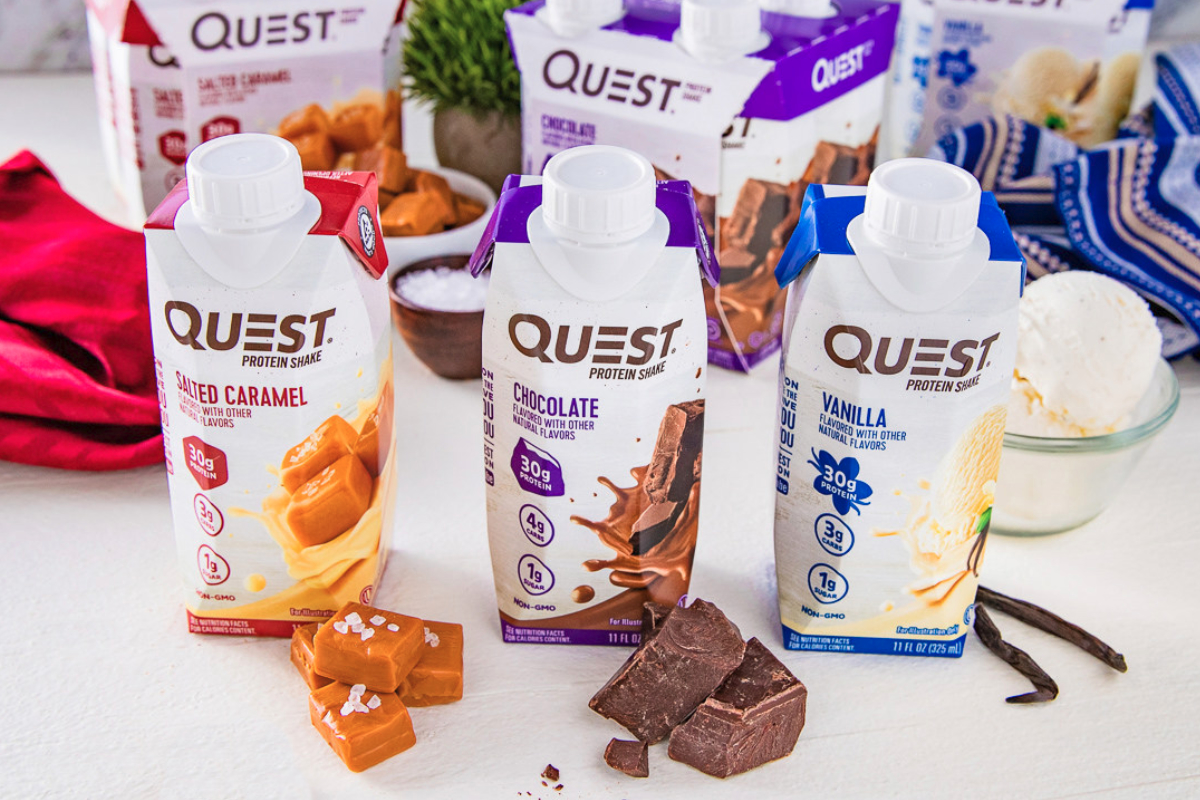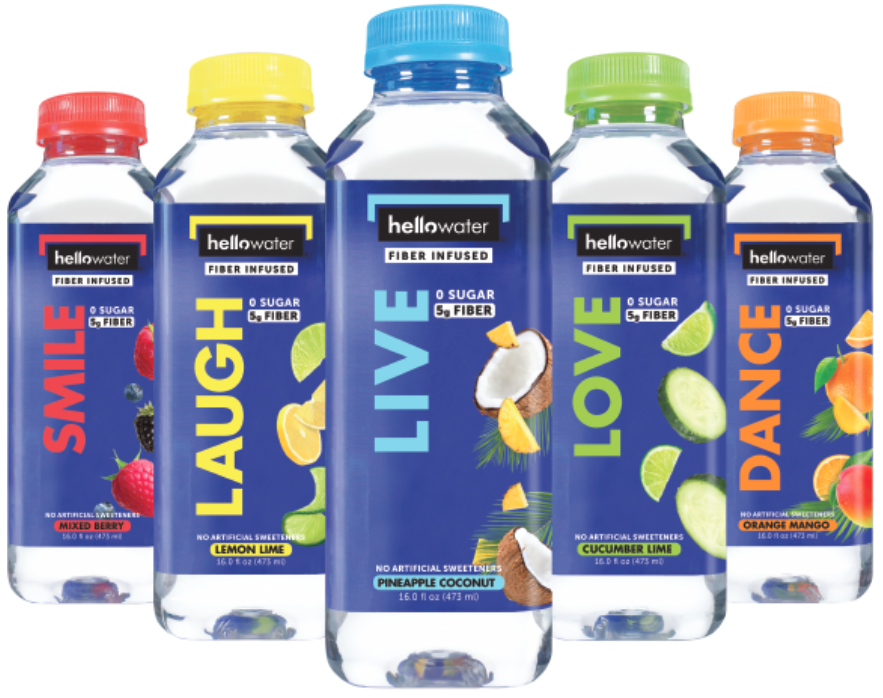CHICAGO — Weight management is a lifestyle many of today’s health- and wellness-conscious consumers follow. It is mindful eating, when one chooses certain products for nutrition and function.
Beverages that assist with weight management lifestyles may be as simple as no-calorie sodas; however, health- and wellness-conscious consumers tend to want more from much of what they put into their bodies. As a result, beverages consumed as part of a weight management lifestyle tend to provide calories, but not too many, and mostly from nutrient dense sources. They are not necessarily meal replacements, rather beverages that satiate.
Most consumers understand that maintaining a healthy weight helps reduce the risk of many adverse conditions. Studies show overweight and obese people are at higher risk for heart disease, high blood pressure, type 2 diabetes, breathing problems, certain cancers and more.
Further, a healthy weight assists with boosting self-esteem, which positively impacts mental wellness. Studies also show that a healthy weight boosts natural energy levels and improves sleep.
Beverages containing satiating proteins, fibers and fats, and little or no refined sugars, are considered effective weight management choices. Often fat-burning and energy-inducing ingredients are included for extra benefits. Think caffeine and green tea extract.
Visual attributes — looks matter
When formulating beverages for a weight management lifestyle, the first attribute to consider is if the beverage should be clear or creamy. There is a place for both formats in the category, with the two consistencies often consumed for different experiences. Appearance and viscosity influences ingredient selection.
“People want something that will help them achieve their goals, while tasting great,” said Corinne Barry, sales manager, Idaho Milk Products, Jerome, Idaho. “Appearance is secondary; however, clear drinks seem to be perceived more as a hydrating beverage, versus nourishing.”
Rosa Sanchez, group manager of beverage innovation, DuPont Nutrition & Biosciences, a business of DuPont, St. Louis, added, “Clear beverages tend to be more refreshing and lower on viscosity, while creamy beverages are more indulgent or high protein.”
 Creamy, shelf-stable beverages — chocolate and vanilla shakes — have dominated the protein beverage category. Some of the products are marketed as slimming, meal replacement drinks. Others have a sporty, refuel proposition. These are the original weight management beverages, with many marketers rebranding and repositioning them as lifestyle drinks.
Creamy, shelf-stable beverages — chocolate and vanilla shakes — have dominated the protein beverage category. Some of the products are marketed as slimming, meal replacement drinks. Others have a sporty, refuel proposition. These are the original weight management beverages, with many marketers rebranding and repositioning them as lifestyle drinks.
“It’s a saturated market but still projected to grow due to their protein message and ability to hit key trends such as convenience and nutrition on the go,” said Vicky Fligel, senior product manager, Glanbia Nutritionals, Chicago.
Clear protein beverages provide a higher level of versatility in terms of innovation. Think carbonation and tropical flavor combinations — features not conducive to creamy drinks.
“Clear protein waters are a great example of convenient, weight management products designed for the mainstream consumer that wants a healthier product to keep them fuller for longer,” said Erin Martin, marketing manager, Milk Specialties Inc., Eden Prairie, Minn. “The clear solution and water-like viscosity supports more refreshing, fruit-focused flavors, inviting consumers to ‘mix things up’ with their hydration habits.”
Ingredients for weight management
Weight management beverages seldom are described as such, as shoppers want to avoid the “dieting” reference. Supporting marketing materials, however, often will explain the weight management benefits of ingredients, with these ingredients often flagged on beverage labels.
“The two key ingredients are protein and fiber because both can deliver satiety benefits,” said Greg Paul, marketing director at DuPont. “Feeling full longer helps cut down on snacking between meals. The beverages typically contain 10 or more grams of protein and are often good sources (2.5 grams to 4.9 grams) of fiber.”
Michelle Braun, global protein scientific affairs lead at DuPont, said, “High-quality plant proteins have been shown in numerous clinical studies to support weight loss and improvements in body composition, which includes loss of fat tissue and preservation of lean tissue.”
Many consumers recognize the benefits of protein. They are looking to consume more of it in different formats throughout the day.
 “You have to be mindful with your processing conditions, including time and temperature, and most importantly the pH of the beverage,” Ms. Fligel said. “Certain proteins are heat stable while others are more pH tolerant. Milk proteins tend to be more heat stable while specific whey protein isolates can provide clarity in a beverage.”
“You have to be mindful with your processing conditions, including time and temperature, and most importantly the pH of the beverage,” Ms. Fligel said. “Certain proteins are heat stable while others are more pH tolerant. Milk proteins tend to be more heat stable while specific whey protein isolates can provide clarity in a beverage.”
Milk protein concentrates and isolates are balanced in fast- and slow-digesting proteins, and thus contribute to short- and long-term satiety, Ms. Barry explained.
Most protein ingredients need to be functionalized for the specific beverage application based on pH. Acidity has less of an impact on fiber ingredients.
“Fiber is another ingredient with weight management implications,” said Pam Stauffer, global marketing programs manager, Cargill, Minneapolis. “Research shows that it can play various roles in health, from increasing feelings of satiety to helping manage weight, in addition to its more well-known digestive health benefits.”
Alex Milligan, technical sales manager, Sensus America, Lawrenceville, N.J., said, “Maintaining a healthy gut microbiome results in a more balanced and healthy balance of hormones, including those that signal satiety and hunger. Hormonal imbalances are often the underlying issue in individuals with an overeating tendency; prebiotic fibers such as inulin can help rebalance the gut microbiome of such individuals.
“From a formulator’s perspective, inulin and inulin-derived fructans, also known as oligofructose, provide some sweetness, excellent bulking capacity and fiber on the nutrition label, all without affecting added sugars on the label.”
Fat also has satiating properties. A growing segment in the weight management beverage category are products designed for the keto diet, which is approximately 70% fat, 20% protein, and 5% each simple carbohydrates and non-starchy vegetables. It is a weight-loss regime rather than a long-term lifestyle eating approach, as it does not provide the body with adequate, balanced nutrition; however, health- and wellness-conscious consumers are drawn to keto beverages for their influence on bodily function.
 Better-for-you fats, such as medium-chain triglyceride (M.C.T.) oils from butter and coconut, are being embraced as a source of sustained, clean energy that satiates appetite and reduces cravings. The M.C.T. oil also has been shown to provide a cognitive boost, support fat burning and balance mood and hormone levels.
Better-for-you fats, such as medium-chain triglyceride (M.C.T.) oils from butter and coconut, are being embraced as a source of sustained, clean energy that satiates appetite and reduces cravings. The M.C.T. oil also has been shown to provide a cognitive boost, support fat burning and balance mood and hormone levels.
When it comes to sweeteners, informed consumers are starting to understand that all sugars are not created equal. Sustained energy is a consideration when it comes to carbohydrate ingredients.
“Consumers are seeking balanced energy and good taste in a healthier sugar from natural sources,” said Jon Peters, president, Beneo Inc., Parsippany, N.J. “It is not the calories that count but the blood sugar levels. A beverage that balances the blood glucose response doesn’t put blood sugar and insulin levels under pressure. In turn a low insulin level helps to burn fat more effectively, impacting weight management.”
Some specialty carbohydrates are recognized for providing sustained energy. One such ingredient is isomaltulose. Derived from sugar beets, isomaltulose is a fully digested carbohydrate, but it is digested more slowly than other sweeteners, resulting in a full supply of energy from glucose over a longer period of time. Being low-glycemic, it releases energy the balanced way without sudden peaks and drops of the blood glucose level.
“Isomaltulose can replace sucrose or fructose — gram by gram — and can be easily applied into existing processing,” Mr. Peters said.
It has a mild sweetness and sensory profile similar to sugar and without any aftertaste. If the sweetness of the final product is perceived as too low, combinations with stevia or other intense sweeteners are possible in order to replace higher glycemic sugars that are not beneficial in a weight management beverage.
“The greatest challenge in formulating weight management beverages is standing out in the crowded space with the ingredients you choose to highlight in your marketing,” Mr. Milligan said. “To stand out in this space requires great attention to consumer trends and demands as well as exceptional foresight for where those trends will lead.”




